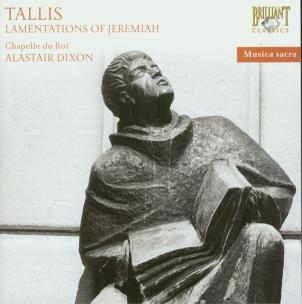- Regulamin
- Koszty dostawy
- Kontakt
- Dziś w ofercie 234 429 produktów
KSIĄŻKI
- Albumy
- Beletrystyka
- Biografie
- Dla dzieci i młodzieży
- Edukacja
- Ekonomia i biznes
- Ezoteryka
- Historia
- Informatyka
- Kalendarze
- Komiksy
- Kryminał i sensacja
- Kultura i sztuka
- Literatura faktu
- Literatura kobieca
- Literatura piękna
- Medycyna
- Nauka języków obcych
- Nauki humanistyczne
- Nauki przyrodnicze
- Nauki ścisłe
- Podręczniki
- Poradniki
- Prawo i administracja
- Przewodniki i podróże
- Psychologia
- Religia
- Sport
- Technika
- Zdrowie i uroda
ZABAWKI
- Artykuły dla niemowląt
- Bączki
- Bujaki i skoczki
- Ciągnij / pchaj
- Dla niemowlaka
- Grzechotki i gryzaki
- Karuzele i pozytywki
- Maty i centra zabaw
- Projektory i lampki
- Sortery i piramidki
- Zabawki
- Edukacyjne i kreatywne
- Figurki
- Klocki
- Lalki
- Pojazdy
- Pluszaki i maskotki
- Sport i rekreacja
- Zabawa w dom
- Zabawki drewniane
- Puzzle
- Do 200 elementów
- 201-500 elementów
- 501-1000 elementów
- Ponad 1000 elementów
- Puzzle 3D
ART. PAP
- Artykuły biurowe
- Artykuły piśmiennicze
- Bloczki i kartki samoprzylepne
- Dziurkacze
- Kalkulatory
- Nożyczki i nożyki
- Skoroszyty
- Teczki
- Wizytowniki
- Zszywacze
- Artykuły szkolne
- Akcesoria szkolne
- Modelowanie
- Notatniki i zeszyty
- Piórniki
- Plecaki i torby
- Pojemniki na śniadanie
- Pomoce naukowe
- Przybory matematyczne
- Przybory rysunkowe
- Upominki i gadżety
- Akcesoria do książek
- Artykuły balowe
- Breloki i zawieszki
- Drobiazgi, różności
- Kubki
- Oferta Świąteczna
- Papeteria, kartki i naklejki
- Skarpetki Many Mornings
- Upominki
GRY
MULTIMEDIA
- Audiobooki
- Beletrystyka
- Biografie i wspomnienia
- Dla dzieci i młodzieży
- Fantastyka
- Filozofia i religia
- Historia
- Literatura faktu i reportaż
- Poradniki
- Sensacja i kryminał
- Filmy DVD/BD
- Animowane
- Biograficzne
- Fantasy
- Horrory
- Komedie
- Romanse
- Science Fiction
- Sensacyjne / kino akcji
- Thrillery
- Muzyka CD
- Alternatywna
- Blues
- Dla dzieci
- Jazz
- Klasyczna
- Piosenka aktorska i poetycka
- Pop
- Rock
- Świąteczna i kolędy
- Akcesoria GSM
- Głośniki
- Kable i adaptery
- Klawiatury
- Myszy
- Słuchawki
PROMOCJE
ZDROWIE
LEGO

Tallis: Lamentations of Jeremiah
Autor: Chapelle du Roi Alastair Dixon
Wydawca:
Brilliant Classics
ISBN:
5028421939551
EAN:
5028421939551
oprawa:
Plastikowa
format:
14.0x12.0cm
język:
angielski
rok wydania:
2002
(0) Sprawdź recenzje
Opis produktu
Zasady bezpieczeństwa
Thomas Tallis served four monarchs in his post at the Chapel Royal, and was held in great esteem by his
masters and colleagues. 'Tallis is dead, and music dies', said William Byrd, his most distinguished pupil. Tallis
was a great survivor of the dangerous shifting sands of religious and court politics in England at the turn of the 16th century and his music displays remarkable craftsmanship. The intensity of expression, and the sheer unrivalled beauty and drama of his work enables it to reach out through the centuries and move the presentday listener. He is one the greatest English composers, and ranks among the 16th century's most significant composers. This recording brings together his two fine settings of the Lamentations of Jeremiah, and English adaptations of several of his best known Latin motets, including 'Sing and glorify heaven's high majesty' which is better known as Spem in alium -- the huge 40-part motet that has become his most famous work. Adapting Latin texts to English became an important task during the 1550s, and the process became known as 'contrafactum'. Contrafacta survive in the output of many of Tallis's contemporaries, especially John Taverner.
Further information
- Recording made in 2002 by Signum Classics
- 'Chapelle du Roi's present recording ... is of historic as well as musical interest ... the choir has
ordered its dynamics with skill,' Gramophone, June 1987
- Booklet note and sung texts
CENA:
16,95
zł
Cena detaliczna:
19,99 zł
15%
rabatu
Najniższa cena z ostatnich 30 dni: 16,95 zł
Produkt niedostępny
Uwaga!!!
Ten produkt jest zapowiedzią. Realizacja Twojego zamówienia ulegnie przez to wydłużeniu do czasu premiery tej pozycji. Czy chcesz dodać ten produkt do koszyka?


Wybierz wariant produktu
